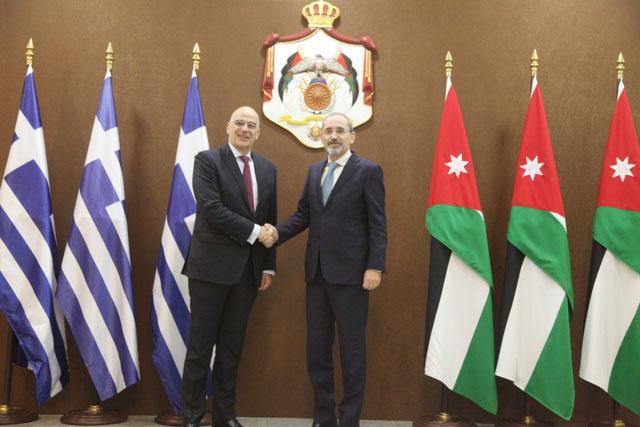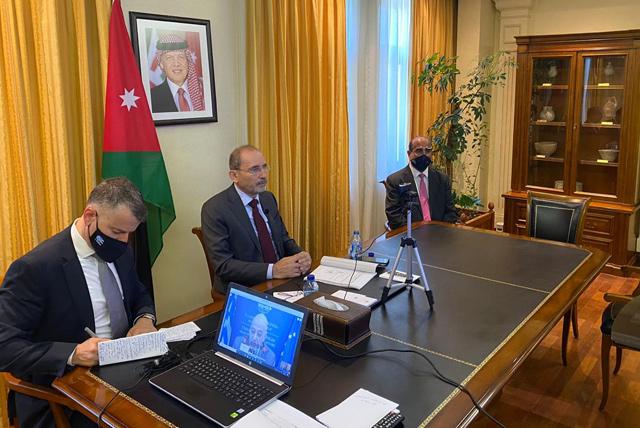You are here
Safadi, Greek counterpart discuss regional developments
By JT - Dec 19,2019 - Last updated at Dec 19,2019

Foreign Minister Ayman Safadi discusses with his Greek counterpart Nikos Dendias on Thursday means to enhance bilateral relations and the latest regional developments (Photo courtesy of Foreign Ministry)
AMMAN — Foreign Minister Ayman Safadi on Thursday discussed with his Greek counterpart Nikos Dendias means to enhance bilateral relations and the region's latest developments.
The two top diplomats went over efforts to expand the Amman-Athens economic, investment and tourism cooperation, noting the need for institutionalised framework to enhance trade exchange and joint economic ventures between the private sectors of the two countries, according to a Foreign Ministry statement.
The two sides also reaffirmed commitment to boosting cooperation within the framework of the Jordanian-Cypriot-Greek coordination framework, aiming at institutionalising growing partnerships.
Dendias expressed appreciation for the Kingdom's efforts towards resolving regional crises and achieving security and stability, stressing his country's support for Jordan within the EU.
Safadi briefed Dendias on the latest regional developments, mainly the Palestinian question, valuing the Greek support to the two-state solution as the only way to resolve the long-running conflict, the statement said.
Dendias, who is on his first visit to Jordan since he took office, also acquainted Safadi with Greece’s vision on the latest developments in the region following the signing of the agreement on the maritime boundaries in the Mediterranean Sea between Turkey and Libya’s Government of National Accord.
On this regard, Safadi said that Jordan believes in dialogue and respect of the international law as the only means to resolve disputes.
The agreement claimed extensive areas of the sea for Turkey, undercutting claims by Greece and the internationally recognised Republic of Cyprus, which runs the southern part of the island.
Infuriated by the pact, Greece accused Libya’s government of deception and expelled the Libyan ambassador to Athens. It also said it had lodged objections with the United Nations, stating the accord violated international law.
Related Articles
ATHENS — Greece and Turkey on Monday smoothed over their most recent diplomatic spat by setting up a June meeting between their respective l
AMMAN — Minister of Foreign Affairs Ayman Safadi, his Greek counterpart Nikos Dendias and his Cypriot counterpart Nikos Christodoulides held
AMMAN — Deputy Prime Minister and Foreign Minister Ayman Safadi on Sunday met with Bahraini Foreign Minister Abdul Latif Al Zayani to discus














